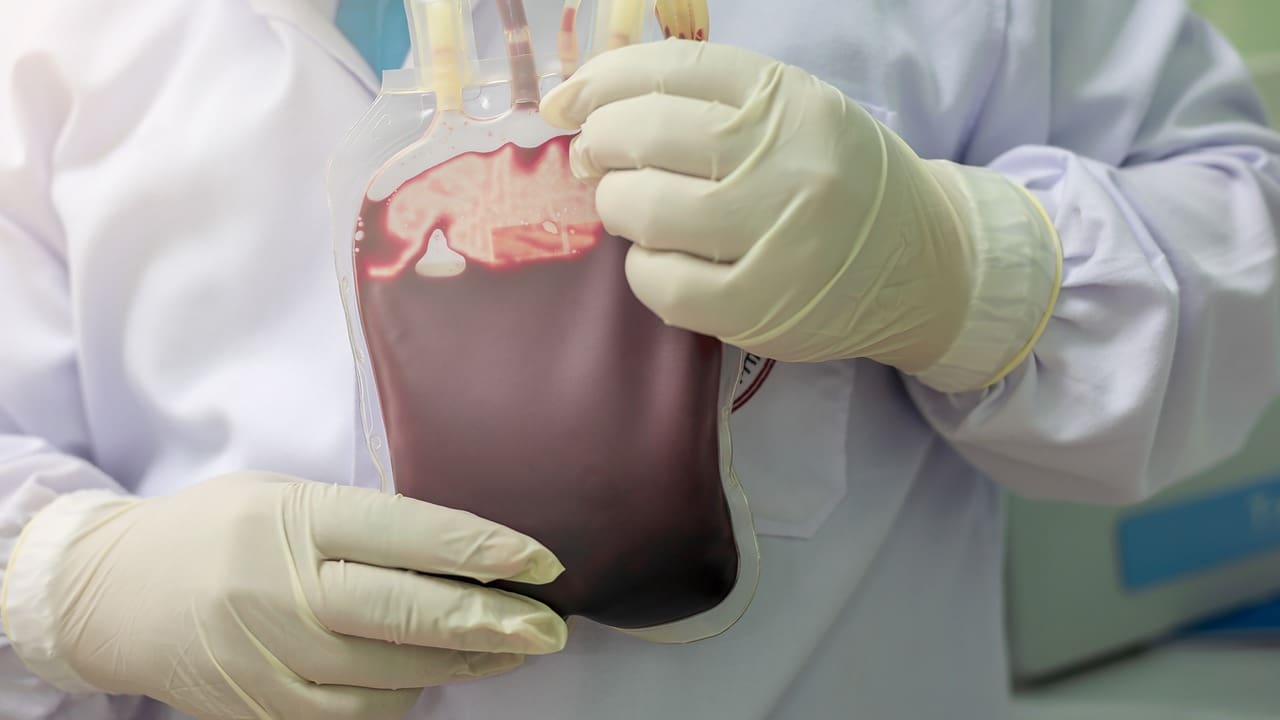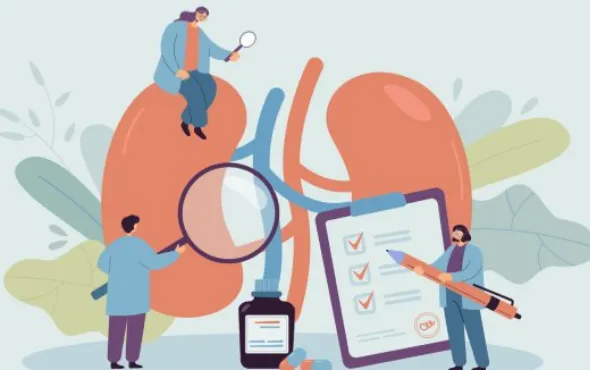What is Organ Transplantation ?
Organ transplantation is a medical procedure where an organ is moved from one person, the donor, to another person, the recipient, who needs it because their own organ no longer works. This procedure can save lives and greatly improve the quality of life for people with severe organ failure. The most commonly transplanted organs are the heart, kidneys, liver, lungs, pancreas, and intestines.

Organ transplantation is a complex surgery that also requires careful checks of both the donor’s and recipient’s health, how well they match, and the risk of the body rejecting the new organ. Learning the basics of organ transplantation helps patients and their families make informed decisions during this important time.
Which Procedures Are Performed in the Organ Transplantation Center
Organ transplantation centers are facilities where organ transplantation operations are performed and organ donation is organized. The following procedures are performed in these facilities:
Organ Transplantation Operations: Organ transplantation centers transfer donated organs to the recipients. These operations are usually performed for organs such as the heart, kidneys, liver, lungs and intestines.
Organ Donation Coordination: Organ transplantation centers coordinate organ donation processes. They manage the organization and communication processes to deliver organs received from donors to suitable recipients.
Donor and Recipient Matching: Organ transplantation centers use computer systems to match donor organs with suitable recipients. This matching process is usually based on blood type, tissue compatibility and other factors.
Patient Evaluation: Before the organs of the recipient candidates and donors are obtained, a patient evaluation is performed. This evaluation is performed to determine the general health status and suitability of both the recipient and the donor.
Postoperative Care and Monitoring: After organ transplantation operations, postoperative care and monitoring of recipients and donors is performed. This process is important to ensure that the organ is compatible and to detect any complications early.
What Organs Can Be Transplanted?

Many different organs can be transplanted, and each one has a unique role in the body. Here is a closer look at which organs can be transplanted:
Kidneys: The most commonly transplanted organs, kidneys are often donated by living or deceased donors. Kidney transplants can dramatically improve the quality of life for patients with kidney failure.
Liver: The liver can be transplanted as a whole organ or as a portion from a living donor. Liver transplants are often necessary for patients with severe liver disease.
Heart: Heart transplants are performed on patients with severe heart failure. A healthy heart from a deceased donor is transplanted into the recipient.
Lungs: Lung transplants can involve one or both lungs and are typically reserved for patients with severe respiratory diseases, such as COPD or pulmonary fibrosis.
Pancreas: Pancreas transplants are often performed for patients with diabetes, especially those who also require a kidney transplant.
Intestines: Intestinal transplants are less common and are usually performed on patients with severe digestive disorders.
When Was the First Organ Transplant? A Historical Perspective
Organ transplantation has a history going back to the early 1900s. The first successful organ transplant was in 1954, when Dr. Joseph Murray performed a kidney transplant between identical twins. This important event led to new techniques and medicines that make organ transplants possible today.
Learning about the history of organ transplantation helps explain the progress and challenges in this area of medicine.
Liv Hospital Organ Transplantation Center
Liv Hospital Organ Transplantation Center is one of Türkiye's reference organ transplantation centers with its service manner at international standards, experienced staff, and technological equipment.
In our organ transplantation center; From living and cadaveric donors, in adult and child age groups; kidney transplantation, liver transplantation, pancreas transplantation are performed.
Experienced Center and Specialist Team
Organ transplantation requires an experienced team and a well equipped center. Multiple organ transplantations and pediatric transplantations are performed in reliable centers under the supervision of physicians specialized in their fields.
With our years of experience in liver, kidney and pancreas transplantations (approximately 5000 kidneys and 1000 liver transplants), our team quickly provides solutions to patients' health problems both during operations and during the follow up phase, ensuring high rates of patient and organ survival.
Our center makes a difference with the combined organ transplantations it performs in patients who need more than one organ transplantation.
In pediatric patients; early post operative follow ups are also carried out in pediatric intensive care units in our hospital that has Pediatric Nephrology and Pediatric Gastroenterology sub branch specialties.
How Long Do Organ Transplants Last? Lifespan of Transplanted Organs
How long a transplanted organ lasts depends on things like the type of organ, the recipient’s health, and the quality of the donor organ. Here is a general idea of how long different transplanted organs can last:
- Kidneys: On average, a transplanted kidney can function for 10 to 15 years, but many patients experience longer lasting success with proper care.
- Liver: A liver transplant can last anywhere from 10 to 20 years, with many patients living healthy lives for decades post transplant.

- Heart: A transplanted heart typically lasts 10 to 15 years, though some recipients enjoy longer periods of good health.
- Lungs: The average lifespan of a transplanted lung is about 5 to 10 years, but this can vary widely depending on the patient’s condition and adherence to medical advice.
- Pancreas: A transplanted pancreas can last around 5 to 10 years, particularly when combined with a kidney transplant.
- Intestines: Intestinal transplants have variable outcomes, often lasting 5 to 10 years.
What Disqualifies You from Receiving an Organ Transplant? Key Factors
Not everyone can receive an organ transplant. There are several reasons why a person might not qualify, such as:
Active Infections: Patients with active infections may not be eligible until the infection is treated and resolved.
Cancer: Individuals with active cancer may be disqualified, although some may qualify after successful treatment.
Severe Organ Dysfunction: Patients with other organ failures or severe comorbidities may not be suitable candidates.
Substance Abuse: Active substance abuse, particularly alcohol or drugs, often disqualifies individuals from receiving a transplant.
Non Adherence to Treatment: A history of not following medical advice or treatment protocols can affect eligibility.
Age and Overall Health: While age alone is not a disqualifier, overall health and ability to withstand surgery play important roles in eligibility.
What is Organ Transplant Rejection? Understanding the Risks

Organ transplant rejection occurs when the recipient's immune system recognizes the transplanted organ as foreign and attacks it. There are three main types of rejection:
Hyperacute Rejection: This occurs immediately after the transplant and is rare due to thorough matching processes.
Acute Rejection: This can happen days to months after the transplant and is typically treatable with medication.
Chronic Rejection: This occurs over a longer period and can lead to gradual loss of organ function.
Patients need to take their prescribed medications to lower the risk of rejection and keep their transplanted organ healthy.
For more information about our academic and training initiatives, visit Liv Hospital Academy.
Frequently Asked Questions for Organ Transplantation
How long can organs be preserved for transplant?
The preservation time for organs varies. For example, kidneys can be preserved for up to 24-36 hours, while hearts can last around 4-6 hours outside the body. Proper preservation techniques are crucial for maintaining organ viability until transplantation.
When was the first organ transplant?
The first successful organ transplant occurred in 1954 when Dr. Joseph Murray performed a kidney transplant between identical twins. This landmark procedure laid the foundation for modern organ transplantation practices.
What are the most common organ transplants?
The most commonly transplanted organs include kidneys, livers, hearts, and lungs. Kidney transplants are the most frequent, followed by liver and heart transplants.
What is organ transplant rejection?
Organ transplant rejection occurs when the recipient's immune system identifies the transplanted organ as foreign and attacks it. There are three main types of rejection: hyperacute, acute, and chronic. Immunosuppressive medications are prescribed to minimize this risk.
How do organ transplants work?
The organ transplant process involves several steps: evaluation of the recipient, matching donor organs with recipients based on compatibility, placing eligible patients on a waiting list, performing the transplant surgery, and providing ongoing post transplant care to prevent rejection.
How many people are waiting for organ transplants?
As of recent statistics, over 100,000 individuals are on the waiting list for organ transplants in the United States. The demand for organs often exceeds the supply, leading to longer waiting times for patients.
What disqualifies you from receiving an organ transplant?
Several factors can disqualify a patient from receiving a transplant, including active infections, severe organ dysfunction, active cancer, substance abuse, and non adherence to medical treatments. Each case is evaluated individually by medical professionals.
How long do organ transplants last?
The lifespan of transplanted organs varies by type. On average, kidneys can last 10 to 15 years, livers 10 to 20 years, hearts 10 to 15 years, and lungs around 5 to 10 years. Factors such as the recipient's health and adherence to medical care can influence these durations.

